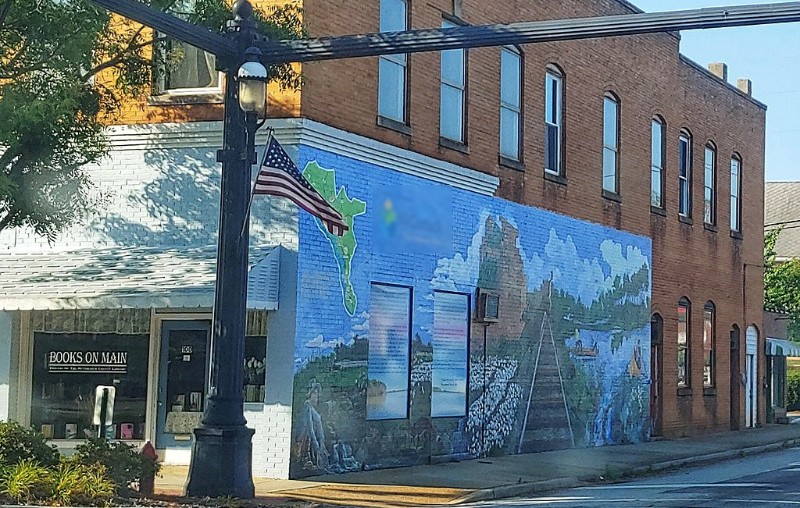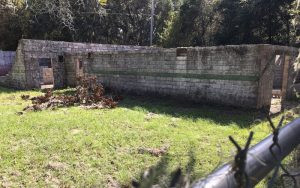
Here’s a South Carolina downtown scene, but where is it? Send your guess about the location of this photo to feedback@statehousereport.com. And don’t forget to include your name and the town in which you live.
Our previous Mystery Photo
 Our Sept. 20 mystery, “Relic of the past,” showed the remains of the historically-important Progressive Club building on Johns Island. It’s significant place in history is explained below.
Our Sept. 20 mystery, “Relic of the past,” showed the remains of the historically-important Progressive Club building on Johns Island. It’s significant place in history is explained below.
Congratulations to these photo detectives: George Graf of Palmyra, Va.; Frank Bouknight of Summerville; Herman Blake of Johns Island; and Jay Altman of Columbia.
Blake, a retired professor and former head of the Gullah-Geechee Cultural Heritage Corridor, outlined the importance of the site:
“These are the remains of the Progressive Club on Johns Island. It was destroyed by Hurricane Hugo and has never been restored. Yet it is one of the most significant historic places in the nation–beyond Johns Island, Charleston County and South Carolina.
“The Progressive Club was founded well before the Civil Rights Movement by Esau Jenkins and local citizens who were truly ‘grass roots.’ Out of their humble efforts, Esau Jenkins began the promotion of basic education, voting and civic participation. He had the loyal support of humble men and women like Alice Wine, John Smalls and many others on Wadmalaw Island, James Island and Edisto Island. With the leadership of Septima Clark and Bernice Robinson and the support of Myles Horton and the Highlander Folk School (Monteagle, Tenn.), Esau and ‘the people’ inaugurated citizenship education classes in the Progressive Club. They ‘hid’ these classes behind the store in front so that white oppressors could not prevent them.
“Martin Luther King and his colleagues (Andrew Young) adopted their strategies and the Progressive Club and its grassroots members became the prototype for the voter rights programs of the Southern Christian Leadership Conference. Many thousand citizens throughout the South became registered voters. they voted and changed America. Indeed, some of the leading African American citizens of Charleston told me (in 1967) how Esau Jenkins inspired, motivated and guided them.
“The Progressive Club should not be permitted to languish and deteriorate. It should be restored, celebrated and emulated.”
Altman shared the information on a historic marker by the Preservation Society of Charleston that is outside of the ruins:
“The Progressive Club, built in 1962-1963, was a store and community center for Johns Island and other Sea Islands until it was badly damaged by Hurricane Hugo in 1989. The club had been founded in 1948 by civil rights activist Esau Jenkins (1910-1972), who worked to improve educational, political, economic and other opportunities for blacks on the island and in the lowcountry.
“Jenkins, Septima Clark (1898-1987) and Bernice Robinson (1914-1994) founded the first Citizenship School in 1957 to encourage literacy and voter registration. Its success led to many similar schools across the South, called “the base on which the whole civil rights movement was built.” The Progressive Club was listed in the National Register of Historic Places in 2007.”
Altman added, “As an aside, the 1966 Volkswagen van owned by Esau and Janie B. Jenkins is (was) on display on the National Mall September 20-26th as a part of the Historical Vehicles Association’s Cars at the Capitol exhibition.”
- Send us a mystery: If you have a photo that you believe will stump readers, send it along (but make sure to tell us what it is because it may stump us too!) Send to: feedback@statehousereport.com and mark it as a photo submission. Thanks.


